Egg And Sperm Donation Requires Fatwa, Deems Minister
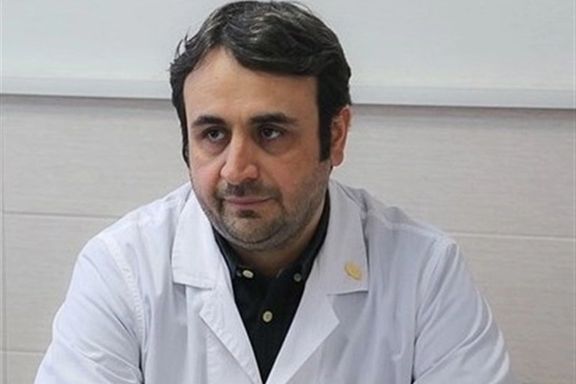
Sperm and egg donation can only happen in Iran if allowed by a religious fatwa, the Islamic Republic health ministry has decreed.

Sperm and egg donation can only happen in Iran if allowed by a religious fatwa, the Islamic Republic health ministry has decreed.
Deputy Health Minister Saeed Karimi said Sunday that the issue of egg and sperm donation to help infertility is beset with both legal and Sharia complications.
He said that the ministry is trying to reach a consensus based on "various fatwas" to announce a legal directive.
But the regime’s stance will be a desperate blow for many families and couples struggling to have children.
Donating sperm and eggs with the aim of helping the fertility of those who need help for various reasons has been legal in many countries for many years.
Head of Iran’s Scientific Association of Women and Midwives, Azam Mousavi told Borna news agency in April: “Until now, no law, resolution or protocol has been drafted and approved regarding sperm donation in Iran; It means that donating sperm is not legal, nor illegal in the country.
"Most Shia scholars do not consider donating sperm as permissible.
“Only a few scholars approve it under the condition that the donor of the sperm is known so that the child attributed to him can enjoy the rights such as inheritance.”
According to Ali Khamenei's fatwa, "in the absence of haram conditions such as looking, touching, etc., a stranger's sperm can be used for fertilization with a woman's egg, but the husband of the woman who became pregnant using this method will not be the father of the born baby.”
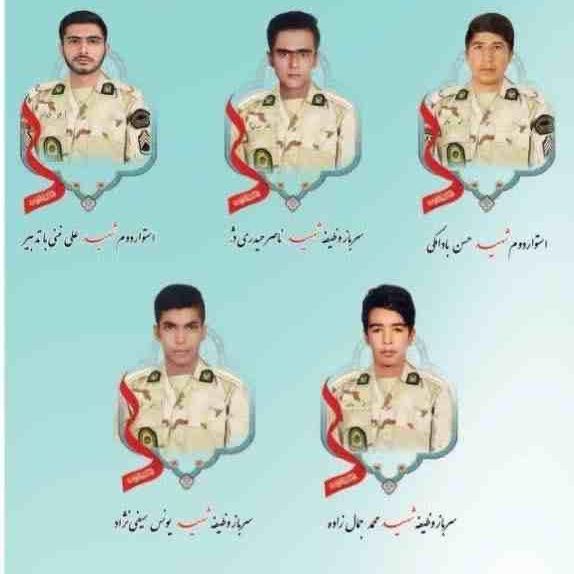
At least five Iranian patrol officers died on Saturday in a clash with what the regime calls “terrorists” on the Pakistani border.
Iranian media reports that the border guards spotted a group of armed men near the border in Saravan, in the southeastern province of Sistan and Baluchestan.
The five officers were killed in the ensuing confrontation with the “terrorist group” on Saturday night.
Two other guards were left seriously injured and are in a critical condition, it was also reported.
There is no information about the affiliation of the armed group, but several Baluch groups from the area are fighting an insurgency against the Islamic Republic.
The most prominent is Jaish al-Adl, which has often targeted Iran's military, especially the Islamic Revolutionary Guard Corps (IRGC).
Saturday’s clash comes only a few weeks after the head of the Saravan Intelligence Police, Alireza Shahraki, was shot dead by unidentified gunmen.
Baluchestan news website Halvash reported that Shahraki had used "extremely violent" methods against detainees for years.
In recent months, the situation in Sistan-Baluchistan has dramatically worsened. The area’s cities have become very tense, especially on Fridays, when residents come out to protest against the regime.
There have reports of numerous attacks on military and government forces in the province in the months since the death in custody of Mahsa Amini last year sparked protests nationwide.
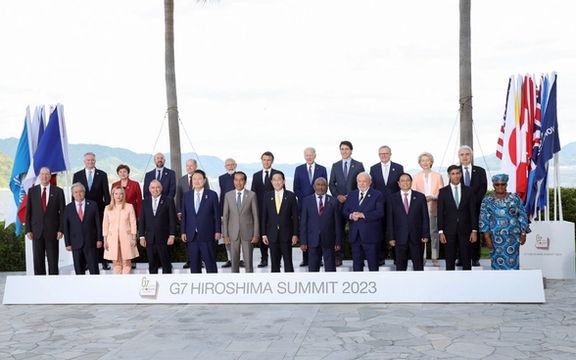
Iran received two international rebukes this week, one by G7 countries meeting in Japan and another by the Arab League summit held in Saudi Arabia.
The G7 summit strongly criticized Iran’s nuclear, human rights and regional policies in its final communiqué in direct and no uncertain terms.
The main trust of the G7 statement was Iran’s nuclear program, which is advancing by more uranium enrichment, without much international monitoring or the prospect of an agreement to limit its scope.
“We reiterate our clear determination that Iran must never develop a nuclear weapon. We remain deeply concerned about Iran’s unabated escalation of its nuclear program, which has no credible civilian justification and brings it dangerously close to actual weapon-related activities,” the final communiqué said.
However, the G7 also reiterated that a diplomatic solution “remains the best way to resolve this issue.”
Talks lasting 18 months form April 2021 to August 2022 between the signatories of the 2015 JCPOA nuclear accord reached a deadlock last September, and the United States pulled back from the process, saying that Iran destroyed the chances for a deal in the 11th hour.
The Arab League meeting in Jeddah, Saudi Arabia did not mention Iran in its final declaration, but one particular clause was clearly aimed at Tehran’s regional activities aimed at building armed proxy groups in Arab countries.
“We call for stopping foreign interference in the domestic affairs of Arab countries and categorically reject all support for the formation of armed groups and militias outside the scope of state institutions,” the statement said.
However, it was reported that two other sections in the draft document were deleted from the final declaration. One reiterated Arab support for territorial claims by the United Arab Emirates from Iran, and the other a positive remark about restoration of ties between Riyadh and Tehran.
The UAE has periodically raised the issue of three small islands in the Persian Gulf that the former Iranian imperial government took over in 1971 as British forces guarding the littoral Arab sheikdoms withdrew from the region.
Iranian media reported Sunday that the two sections were deleted from the final declaration apparently as a result of a compromise.
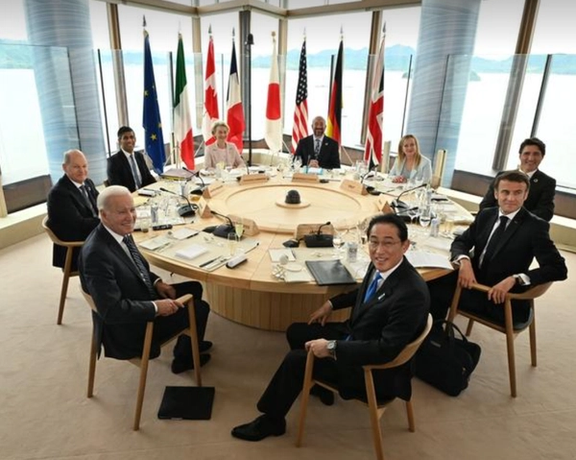
Which Arab League states objected to the inclusion of the territorial claim remains unclear, but the presence of Iran’s ally, Syria’s Bashar al-Assad at the summit could have played a role. It would have been extremely embarrassing for Assad to put his name on a statement that would include such a demand while he still depends on the Iranian regime both militarily and economically.
Iran is still unhappy with the Arab summit despite this victory. Foreign ministry spokesman Nasser Kanaani Sunday criticized the language in the final communique, saying Iran expected the meeting to forego “repetitive and tiresome claims” against Iran.
However, the more serious rebuke Iran received was undoubtedly the G7 declaration, which also slammed Tehran’s human rights record, its regional policies, and its military support to Russia in its invasion of Ukraine.
“We express our grave concern regarding Iran’s continued destabilizing activities, including the transfer of missiles, unmanned aerial vehicles (UAVs) and related technologies to state and non-state actors and proxy groups, in breach of UNSCRs including 2231 and 2216.”
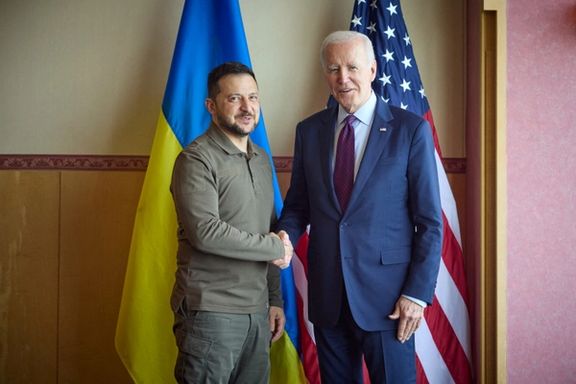
The tone of the G7 statement about violations of UN resolutions is ominous for the Islamic Republic.
The accumulation of its unabated uranium enrichment, regional interventions that fueled recent Israeli Palestinian fighting, and its provision of weapons for Russia can all add up and lead to an effort by the West to revive international sanctions against Tehran.
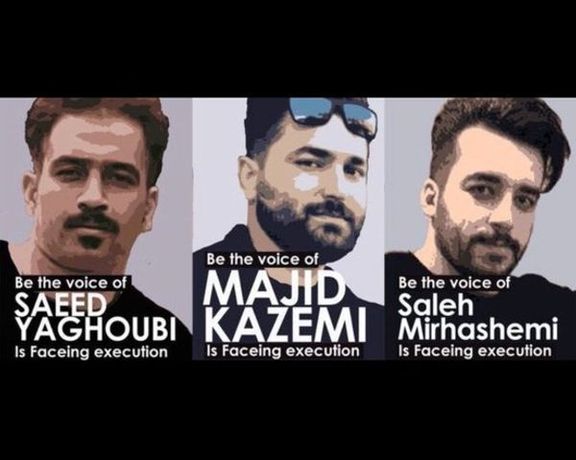
Iranian regime agents have attacked the family of a recently executed protestor in their home.
Security personnel assaulted the brothers and parents of Majid Kazemi, and carried out two arrests.
A cousin, Mohammad Hashed said in a tweet Sunday that the agents arrested two brothers of Majid while they were severely injured.
Hashemi said: After a few hours, while Majid's sister was following up on their status, they returned and arrested his sister too.”
Majid Kazemi, Saeed Yaghoubi and Saleh Mirhashemi were convicted over the death of two IRGC’s Basij militia members and a police officer in protests of November last year, in what Persian media have dubbed the ‘Esfahan (Isfahan) House’ case.
The judiciary announced their execution in a statement on Twitter Friday morning, bringing to at least seven the number of protesters hanged since nationwide protests broke out in September 2022 following the death in custody of 22-year-old Mahsa Amini.
The three were handed down the death sentence in a trial condemned as a travesty of justice by human rights campaigners, who say the prisoners were tortured into confessions, and there is no reliable evidence against them.
Over the past few days, a large number of foreign officials and human rights activists had called on the Islamic Republic to stop the executions.
So far, around 500 civilians have been killed by security forces and at least 20,000 arrested. While many have been released, around 1,500 face criminal charges, and at least 80 detainees face the death sentence.
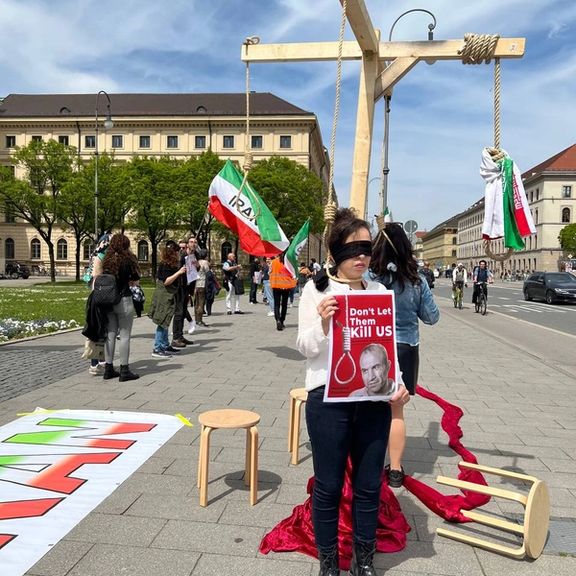
Iranians at home and abroad staged protests Saturday against the Islamic Republic execution spree, the latest victims of which were three people hanged Friday.
The gathering of protesters started in Australia and New Zealand and continued until Saturday evening in dozens of other cities in Sweden, Denmark, Germany, Norway, Finland, Holland, Austria, among many others. Cities in the western parts of the US and Canada were the last where people held rallies.
Iranians are outraged and frustrated over the hangings; frustrated that protest gatherings outside the prison where they were held failed to halt the executions and outraged that calls by the international community did not stop the Islamic Republic's execution machine.
During rallies in Norway, Masud Gharahkhani, the Iranian born politician who heads the Norwegian parliament, sent a video message to protesters in the Swedish city of Gothenburg, saying, "In Iran, young people are imprisoned and executed, journalists do not have freedom and security, and the country's oil money is not spent for the people, but wasted on corruption.”
Alireza Akhondi, Swedish-Iranian member of the Swedish parliament, told Iran International during the rallies that the gathering of expatriates around the globe in the past few months prompted several resolutions in Western against the Islamic Republic.
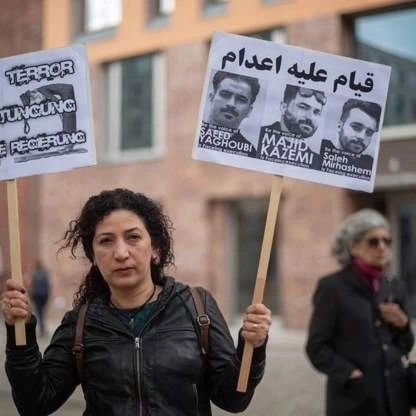
The rallies were planned before the regime hanged Majid Kazemi, Saeed Yaghoubi and Saleh Mirhashemi Friday morning over trumped up charges after extracting forced confessions, in a case described as a travesty of justice. Human rights campaigners say they were tortured into confessions, and there was no reliable evidence against them.
They were convicted over the death of two IRGC’s Basij militia members and a police officer during protests in November last year, in what Persian media have dubbed the ‘Esfahan (Isfahan) House’ case. The three had been arrested in an Esfahan (Isfahan) neighborhood called “Esfahan House,” thus the name of the case.
Leaked audio from police radio chatter from the night the three regime agents were killed indicates that they were killed by friendly fire of plainclothes forces. The victims had even alibis for the time the agents were killed, with the family of one of the victims saying there is CCTV video footage of their son at work.
In reaction to the “grossly unfair trial that bore no resemblance to meaningful judicial proceedings,” Diana Eltahawy, Amnesty International’s Deputy Director for the Middle East and North Africa, said on Saturday, “These executions are designed by the Iranian authorities to send a strong message to the world and the people of Iran that they will stop at nothing to crush and punish dissent. In the absence of a robust international response, the authorities will continue to revel, unabated, in their impunity with lethal consequences for people in Iran.”
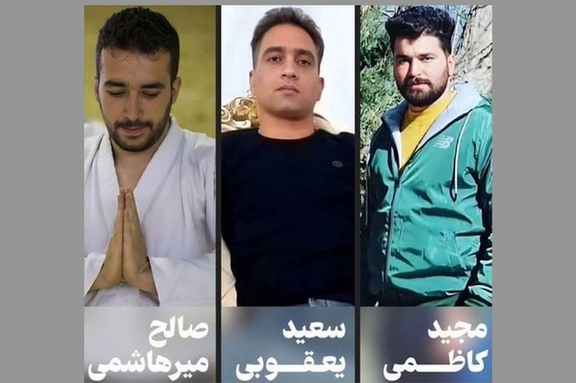
“Governments must urgently denounce these executions, in the strongest possible terms, through public statements and demarches. However, in the face of the Iranian authorities’ unrelenting use of the death penalty, this is not enough. People in Iran don’t have the luxury of time – they are being arbitrarily deprived of their lives at a horrific rate under the guise of judicial executions,” she said, urging all states “to exercise universal jurisdiction over all Iranian officials against whom there is sufficient admissible evidence of criminal responsibility for torture and other crimes under international law.”
Several neighborhoods in the capital Tehran and in Esfahan as well in a few other cities were scenes of protests against the regime’s executions. Students at universities across Iran also staged demonstrations.
Three more prisoners were executed for drug-related offences on Saturday as protesting families were shot at and tear-gassed outside the jail.
Friday's executions brought to at least seven the number of protesters hanged since the beginning of the nationwide protests last September, which turned into one of the boldest challenges to the clerical rulers since the 1979 revolution. The protests were ignited by Mahsa Amini's death in the custody of Iran's morality police.
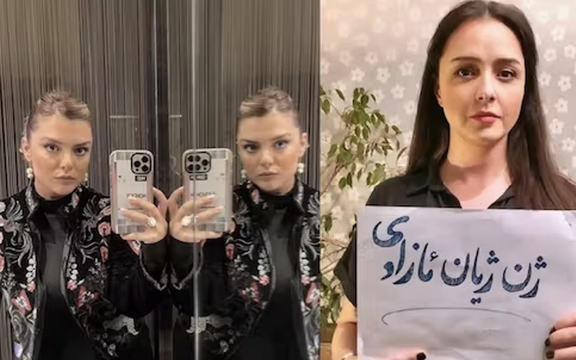
Actresses who remove hijab in Iran face a ban from performances of up to year under a new bill.
Measures already in place to punish female artists and athletes will be worsened by the legislation now going through parliament, news daily Entekhab reports.
A government spokesperson said the bill proposed by the Judiciary regarding hijab was reviewed and approved by the government and sent to the legislature last week.
The penalty will be a ban from all cultural activities for at least three months and up to a maximum of a year.
Even when anonymous, women found to have transgressed rules over the removal of veil, nudity and wearing thin clothes can now be identified through smart technology.
Those found guilty will initially be warned and fined up to three times, and in case of repeating the crime for the fourth time, they will be referred to the judicial authority.
If the hijab is removed in a car, after two warnings and a fine, the vehicle will be stopped for seven days. Civil servants working at state organizations will be prosecuted through the supervisory mechanisms up to three times, and the hijab remover finally will be referred to the judicial authorities.
Four decades after the Islamic Republic forced women to wear headscarves, long tunics and trousers, or the long black veil called chador, women are increasingly appearing in public in regular clothing such as colorful dresses and with no headscarf covering their hair.
A survey carried out by the ministry of Islamic guidance in 2015 showed that more than 70 percent of Iranians did not agree with compulsory hijab.